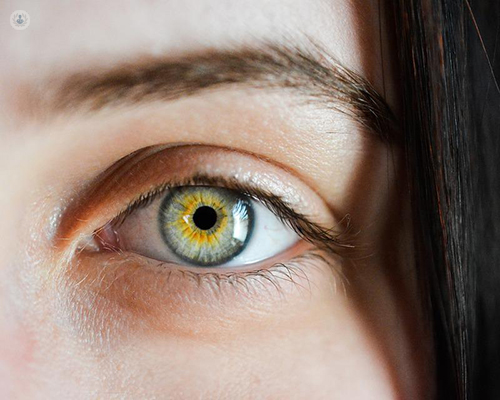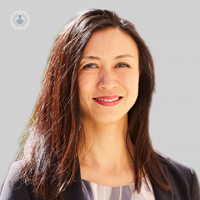Understanding laser eye surgery: A comprehensive guide
Written in association with:In today's fast-paced world, vision is not just a necessity; it's a fundamental asset for thriving in both personal and professional spheres. For those grappling with refractive errors like myopia, hyperopia, and astigmatism, the advent of laser eye surgery has been revolutionary. In this article, esteemed consultant ophthalmic surgeon Miss Valerie Saw delve into the intricacies of laser eye surgery, exploring its mechanism, suitability, longevity of results, and more.

How does laser eye surgery work?
Laser eye surgery, also known as refractive surgery, aims to correct vision imperfections by reshaping the cornea – the transparent front part of the eye. The most common type of laser eye surgery is LASIK (Laser-Assisted In Situ Keratomileusis). During LASIK, a thin flap is created on the cornea using a microkeratome or a femtosecond laser. This flap is then lifted to expose the underlying corneal tissue. Subsequently, an excimer laser is utilised to precisely remove microscopic amounts of corneal tissue, reshaping its curvature to correct refractive errors. Finally, the flap is repositioned, facilitating rapid healing.
When is it recommended?
Laser eye surgery is typically recommended for individuals above 18 years of age who have stable vision for at least one year. Candidates should be in good overall health, free from conditions such as cataracts, glaucoma, and keratoconus. Moreover, candidates must have realistic expectations regarding the outcomes of the procedure. Consulting an experienced ophthalmologist is crucial to determine candidacy and discuss personalised treatment options.
How long do results last?
One of the most frequently asked questions about laser eye surgery pertains to the longevity of its results. While individual experiences may vary, many patients achieve significant and long-lasting improvements in their vision. The majority of patients achieve 20/20 vision or better following surgery.
However, it's important to note that as with any medical procedure, there can be no guarantees. Factors such as age, pre-existing eye conditions, and lifestyle choices can influence the stability of results over time. Regular follow-up appointments with an eye care professional are essential to monitor vision and address any emerging concerns.
Advantages and considerations
Advantages:
- Reduced dependence on corrective eyewear: Laser eye surgery offers freedom from the hassle of glasses and contact lenses, enhancing convenience and quality of life.
- Quick recovery: Most patients experience minimal discomfort and rapid visual recovery following laser eye surgery, with many returning to their normal activities within a day or two.
- Precise and customised treatment: Advancements in laser technology allow for highly precise and personalised treatment tailored to each individual's unique eye anatomy.
Considerations:
- Potential risks: While complications are rare, laser eye surgery carries inherent risks, including dry eyes, glare, halos, and under-correction or over-correction of vision.
- Cost: The cost of laser eye surgery can vary depending on factors such as the type of procedure, technology used, and geographical location. It's important to thoroughly research costs and financing options before proceeding with surgery.
- Post-operative care: Following surgery, patients must adhere to prescribed post-operative care instructions, including the use of prescribed medications and attending follow-up appointments.
Laser eye surgery represents a significant advancement in ophthalmology, offering a safe and effective solution for correcting refractive errors. As with any medical procedure, thorough consultation with an experienced eye care professional is paramount to ensure optimal outcomes and patient satisfaction.
Miss Valerie Saw is a distinguished consultant ophthalmic surgeon based in London. If you would like to book a consultation with Miss Saw you can do so today via her Top Doctors profile.


